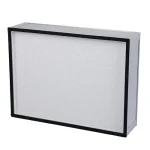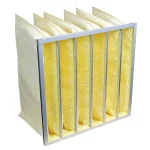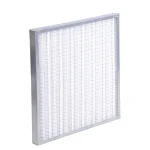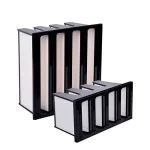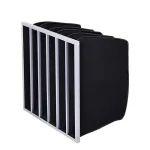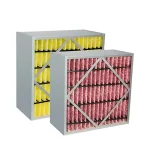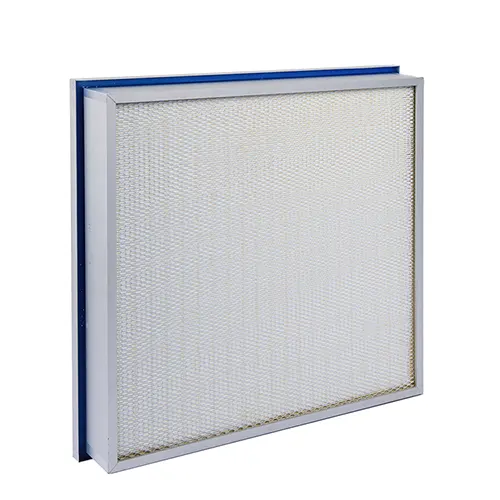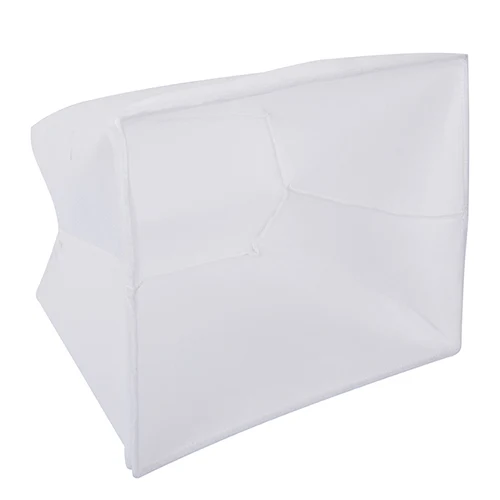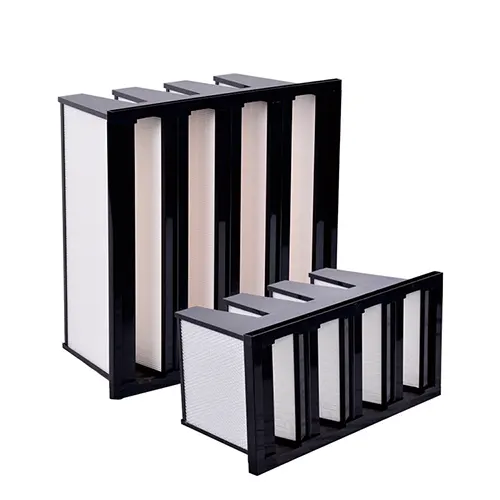Seasonal Air Filter Tips for Optimal HVAC Performance
Table of Contents:
Section 1: Preparing for Allergy Season in Spring
Section 2: Dealing with Dust and High Usage in Summer
Section 3: Managing Leaf Debris and Mold in Fall
Section 4: Combating Indoor Pollutants in Winter
Section 5: CleanLink Offers Quality Filters for All Kinds of HVAC Systems
Section 6: Tips for Year-round Maintenance
Maintaining your HVAC system is crucial for ensuring comfortable indoor temperatures and good air quality. However, the changing seasons can have a significant impact on air quality and the performance of your HVAC system.
Air filters play a vital role in addressing these seasonal chanllenges, helping to keep your HVAC system operating in a cost-efficient way while maintaining a healthy indoor environment.
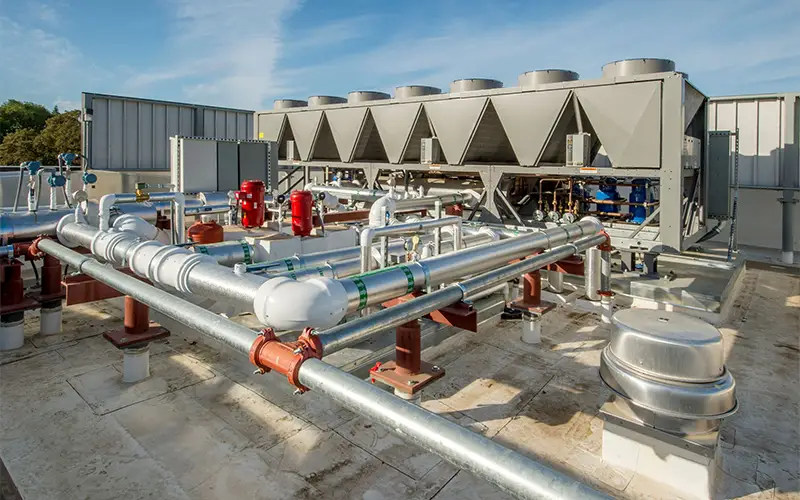
Preparing for Allergy Season in Spring
As spring comes, along with a wave of pollen and allergens that can cause serious problems with indoor air quality.
Trees, flowers, and plants release high amounts of pollen, which can easily invade your home or office and circulate through your HVAC system, aggravating allergies and respiratory conditions.
Importance of Using High-Efficiency Filters During Spring
To combat the rise in pollen and other allergens, it’s important to use high-efficiency air filters in your HVAC system, especially those with a MERV rating of 8 or higher.
These filters are designed to trap smaller particles, such as pollen, dust mites, and other allergens, keeping them from circulating through the air.
Higher-efficiency filters can make a significant difference in reducing allergy symptoms for building occupants, creating a healthier indoor environment.
Tips for Manage Increased Allergens
Spring is the ideal time to conduct thorough inspections and replace your air filters more frequently, as filters can quickly become clogged with pollen and dust.
Check your HVAC filter at least once a month during Spring, and get it replaced as soon as it appears dirty or clogged.
In homes with allergy sufferers, you should consider upgrading to HEPA filters for even greater protection. Keeping your filters clean ensures optimal airflow, reduces strain on your HVAC system, and helps maintain cleaner, allergen-free indoor air throughout the season.
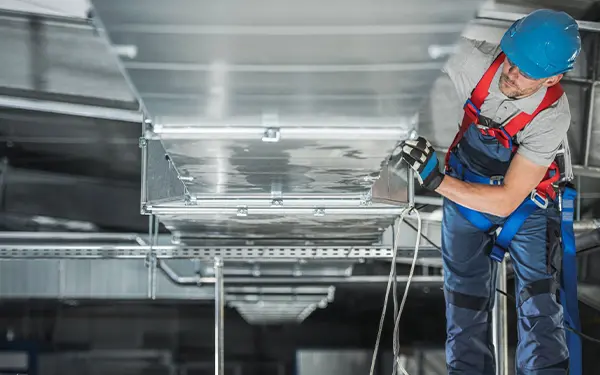
Dealing with Dust and High Usage in Summer
During summertime, HVAC systems typically experience increased demand as they work hard to keep indoor spaces comfortable.
Along with higher usage, dry conditions can easily cause an increase in dust levels, which can accumulate in your air filters more quickly.
If not managed properly, this combination can reduce your HVAC system’s efficiency and lead to higher energy bills.
Frequent Filter Changes Can Help Maintain Cooling Efficiency
It’s crucial to inspect and replace air filters at a frequent rate, which ensures that your HVAC system operates at peak performance during the summer.
When filters become clogged with dust, they restrict airflow, forcing the system to work harder to maintain the desired indoor temperature.
The key to allowing your HVAC system to work efficiently is to replace filters regularly. This can lead to lower energy consumption and a more comfortable indoor environment.
Keeping Filters Clean Helps Prevent System Strain During Peak Usage
Summer is one of the busiest times of the year for HVAC systems as the global temperature climbs. A dirty air filter is leading to unnecessary strain on your system.
Reduces cooling efficiency, a clogged filter can also increase the risk of system breakdowns, resulting in costly repairs.
By keeping your filters clean and changing them regularly, you reduce system strain, prolong the life of your equipment, and ensure your home or office stays cool and comfortable throughout the hottest season of the year.
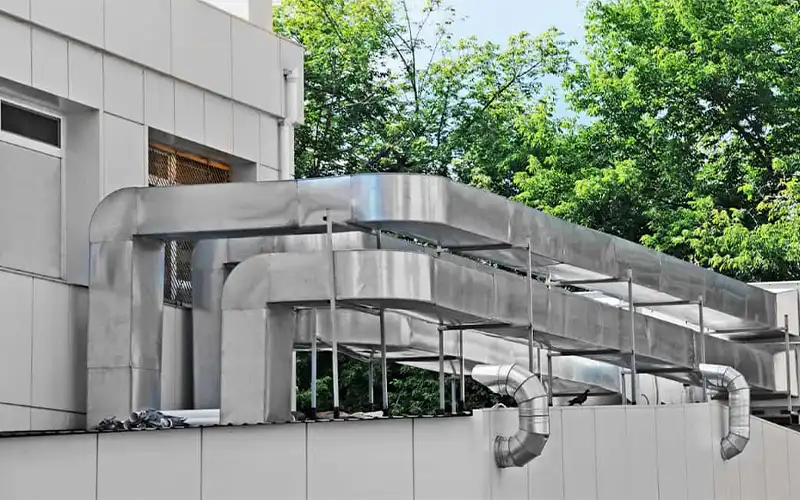
Managing Leaf Debris and Mold in Fall
Fall brings beautiful foliage, but it also comes with the challenge of leaf debris and increased humidity, which can negatively impact indoor air quality.
As leaves fall and decay, they release fine particles that can find their way into your HVAC system. In addition, the damp conditions common in the fall can promote mold growth, which can become airborne and circulate throughout your space if not properly filtered.
Recommendations for Switching to Filters That Capture Mold Spores and Fine Debris
To combat the impact of mold and leaf debris, it’s a good idea to switch to air filters with a higher MERV rating during the fall.
Filters rated MERV 9 or higher are more effective at capturing fine particles, like mold spores and tiny debris from decaying leaves.
By upgrading your filters during this season, you can significantly reduce the risk of mold and improve indoor air quality, making your home or office healthier for everyone.
Preparing the HVAC System for Winter
Fall is considerably the perfect time to prepare your HVAC system for the coming cold winter months. Making sure your air filters are clean and in good condition will help your system operate efficiently as you transition to heating.
Regular inspection and replacement will also prevent any blockages or strain on the system, reducing the likelihood of breakdowns during the winter when the HVAC system has to work continuously to keep indoor spaces warm.
Combating Indoor Pollutants in Winter
The low temperature in winter months tends to drive people to spend more time indoors, and windows and doors are kept closed to retain heat.
This reduced ventilation leads to a buildup of indoor pollutants like dust, pet dander, and smoke, which can compromise air quality and aggravate allergies or respiratory issues.
The limited exchange of outdoor air makes it especially important to manage indoor air quality by using the right air filters.
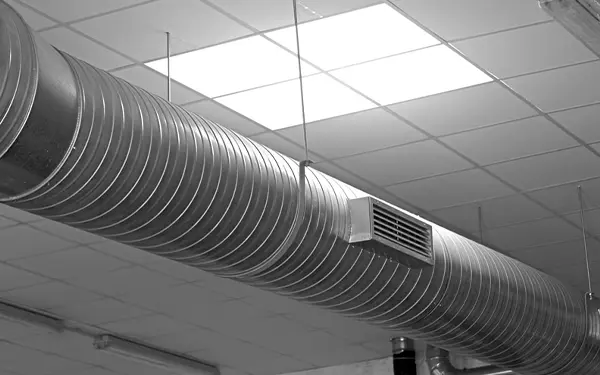
Importance of Using Filters That Capture Indoor Pollutants
Winter increases indoor activities time like cooking, heating, and gathering, which can generate additional pollutants in the air.
To manage this, it’s important to use air filters designed to capture fine particles such as dust, pet dander, and smoke.
Filters with a MERV rating of 8 or higher are particularly effective at removing these contaminants, keeping indoor air clean, and reducing the risk of irritation or health problems caused by poor air quality.
How to Adjust Filter Maintenance Schedules
With less fresh air circulating from outdoors, HVAC systems are more likely to rely on clean filters to do the job of maintaining good air quality during the winter months.
So it’s essential to adjust your filter maintenance schedule by checking filters more frequently and replacing them when they become dirty or clogged.
This helps prevent the accumulation of pollutants and ensures your HVAC system runs efficiently, preventing strain that could result in higher energy costs or system malfunctions.
Regular maintenance will also keep your indoor environment comfortable and healthy during the colder season.
CleanLink Offers Quality Filters for All Kinds of HVAC Systems
Tips for Year-round Maintenance
How to Choose the Right Filter for Your HVAC System
When selecting an air filter, it’s important to choose one that meets the needs of your environment.
Filters are rated by their MERV (Minimum Efficiency Reporting Value), with higher MERV ratings capturing smaller particles.
For residential systems, a MERV rating between 7 and 12 is generally sufficient to trap dust, pollen, and other common allergens.
In commercial or high-traffic applications, you might need a filter with a MERV rating of 13 or higher to manage heavier particulate loads.
Always check your HVAC manufacturer’s recommendations to ensure the filter you choose is compatible with your system. You can contact CleanLink’s air filter experts for more solutions.
Importance of Regular Filter Inspections
Regardless of the season, your air filter needs to be checked regularly to ensure it’s not clogged or damaged.
Filters can build up dust, dirt, and other debris that restrict airflow, forcing the HVAC system to work harder and lowering energy efficiency.
Aim to inspect your filters at least once a month, especially during peak seasons like summer and winter when your HVAC system is running more frequently.
Regular inspections help catch any issues early and ensure your filter is always functioning at its best.
Benefits of Keeping a Consistent Maintenance Schedule
To help keep your HVAC system running smoothly, a consistent maintenance schedule is also indispensable to extend its lifespan.
Clean filters improve airflow, maintain system efficiency, and reduce the risk of costly breakdowns. By keeping a year-round schedule for filter inspections and replacements, you’ll enjoy better air quality, lower energy costs, and fewer emergency repairs.
Conclusion
Your HVAC system works hard to keep your indoor environment comfortable, but it relies on clean and efficient air filters to do its job effectively.
By adjusting your air filter maintenance routine to account for seasonal changes, you can optimize your HVAC system’s performance, improve indoor air quality, and extend the lifespan of your equipment. Take proactive steps this year to ensure that your HVAC system runs efficiently, no matter the season.
